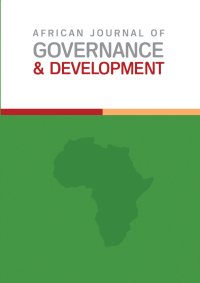The Implications of COVID-19 on Informal Trading in Gauteng, South Africa
Main Article Content
Abstract
COVID-19 and consequent changes in mobility have altered informal trading as a significant livelihood activity for many unemployed people in South Africa. Emerging evidence shows that informal traders were severely affected by this health and economic crisis. We
analyse a representative sample of 15 informal traders from Gauteng and show that transitions to reduced working hours and to working from home have resulted in enhanced business skills, increased social bonds, and using digital platforms for trading. Despite
lockdown and social distancing measures, we demonstrate three facilitating themes: human capital benefits and sustaining trading, social capital benefits, financial benefits and using digital platforms to enhance trading. The article concludes with suggestions to
strengthen associations and business forums for informal traders in the second economy.
Article Details

This work is licensed under a Creative Commons Attribution-NonCommercial-NoDerivatives 4.0 International License.
